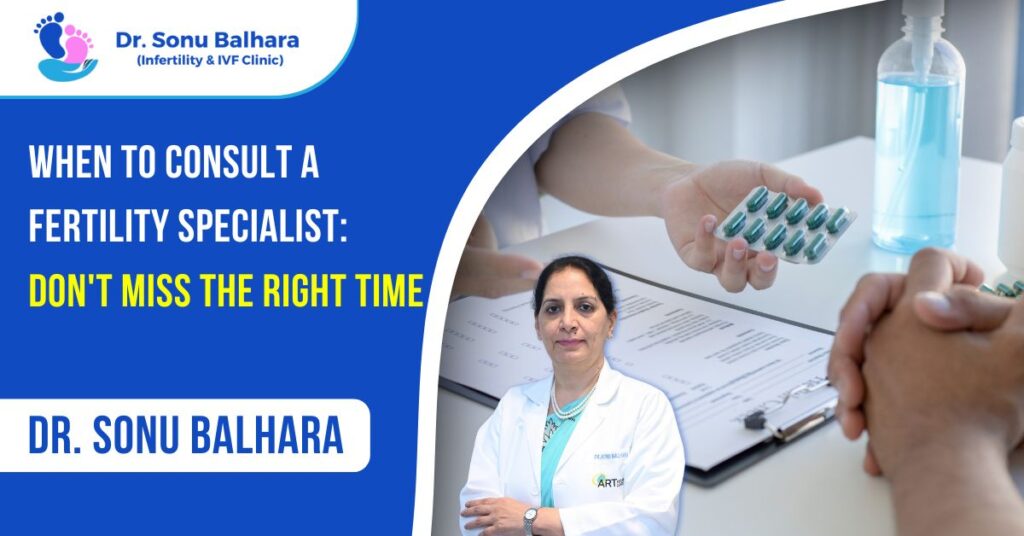For many couples, the path to parenthood starts with eagerness, anticipation, and visions of cradling their little bundle soon. However, if month follows month with no success, those visions can become overshadowed by questions: “Is there something amiss with us?” “Are we trying too soon to get help?” or “Should we wait a bit more?”
The fact is that timing plays a very significant role in fertility. Understanding when to visit a specialist can be what differentiates waiting endlessly with no recourse and going ahead with clarity, confidence, and the appropriate plan.
Why timely consultation is important
Fertility is not an absolute quantity—it’s variable, and it varies according to age and health. In women, the number of eggs and their quality gradually reduce after age 30, and the decline accelerates after 35. Even in men, sperm health is influenced by lifestyle, medical conditions, and age.
The sooner a couple obtains medical advice, the sooner they will be able to diagnose basic problems and effect good solutions. Delays can sometimes translate into progressing from basic treatments to more sophisticated ones such as IVF.
The golden timeline: When to seek help
Here’s an easy guide you can use:
- Below 35 years: If you’ve been trying naturally for 12 months and nothing has happened, see a specialist.
- 35–39 years: Don’t delay—if you’ve been attempting for 6 months, get help.
- 40 and older: Make an appointment as soon as possible, even if you’ve only just begun trying.
Indications that you cannot ignore
Although you may not have been attempting for a complete 6 or 12 months, certain situations require an earlier visit. They include:
- Irregular, missing, or extremely painful periods.
- Known conditions such as PCOS, endometriosis, or thyroid issues.
- Past history of pelvic infections, surgery, or ectopic pregnancy.
- Recurring miscarriages (two or more).
- If the man has low sperm count, diminished motility, or a history of testicular/pelvic surgery.
Infertility is not a women’s problem
It’s a misconception that problems with fertility are largely feminine. In fact, male issues are responsible for almost 40% of cases. A routine semen analysis will provide significant information and point in the right direction for treatment. This is why both partners need to be evaluated simultaneously—it’s quicker and avoids unwarranted anxiety.
What happens in your first consultation
It is not something to be anxious about visiting a fertility specialist. The initial consultation is typically a chat with some tests added, intended to provide you with clarity.
Step 1: Discussion of medical history
- You will be questioned about your cycles, lifestyle, past pregnancies, illnesses, and family history.
Step 2: Routine investigations
- For women: blood tests (to test ovarian reserve, hormones such as AMH, FSH, TSH), ultrasound scans, and in some cases, tests to examine fallopian tubes or uterus.
- For men: semen analysis and, if necessary, hormonal tests.
Step 3: Roadmap ahead
- Depending on the findings, your physician might suggest lifestyle changes, medicines, ovulation monitoring, IUI, or further interventions such as IVF/ICSI if necessary.
Preparation before your visit
- Monitoring your cycles and writing down key information.
- Bring earlier reports, scans, or prescriptions.
- Adopt a healthy lifestyle—stop smoking, cut down on alcohol, take balanced food, and exercise regularly.
- Take a folic acid supplement (after consulting your doctor).
- Try coming to the appointment as a couple—fertility is a shared experience.
Remember:
- Under 35 → 12 months
- 35–39 → 6 months
- 40+ or established problems → Don’t wait
- The time to visit a fertility specialist is sooner than you may believe.

